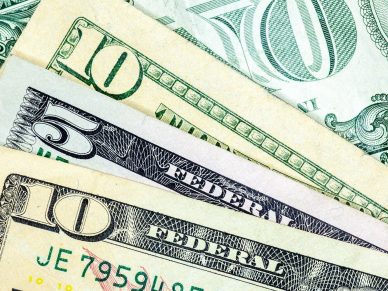Financial freedom. It’s worth daydreaming about. Between the side hustles, the cryptocurrency investments and the motivational self-help books, isn’t that what we’re all striving for?
And yet, the concept of financial security can sometimes seem like little more than an abstract idea. Not anymore. In this article, we’re giving you five concrete steps you can take right now to get yourself on the path to financial security.
With the right resources, approach and discipline, it is possible to achieve financial security in your 30s. Let’s dive right in.

1. Think Like A Financial Planner
Where do you start when it comes to seeking financial security? Start with learning. There are plenty of courses in financial planning that can help you level up your skills, from entry-level financial planner courses that help you discover how to securely manage your funds, right up to Certified Financial Planner® certification that’s necessary to operate as a professional in the industry, and which adheres to the FPA Code of Professional Practice.
Having the ability to set goals which are grounded in a strong education and economic knowledge will enable you to lay out the roadmap to financial security which is based on evidence rather than pure ambition.
You can also choose to work with a certified financial planner directly. Many successful business owners and entrepreneurs work with both a financial planner and an accountant, as they help different strains of your financial health. An accountant will act as your port of call for accurate handling of your income and current financial situation, whereas financial planners tend to look more at building longer-term plans for a healthy, secure financial future.
2. Tackle Your Debt
Sometimes it’s necessary to look backwards in order to take a significant step forwards. And whilst it’s tempting to scope out the internet for the next big investment, if you’re serious about financial security, you have to tackle your debt first, because it’s simply not possible to be in a strong financial position if you still have loans, interest fees and late payments stacked against your name.
Not only are they a niggling feeling to have stuck in the back of your head, the lasting effect of failing to pay off your debts can be pretty damaging. If you’re looking to buy a house, a car, or make any other significant payment or investment, your credit rating will be impacted by how many debts you still have outstanding, which can dramatically reduce your ability to secure lending.
Start with the highest interest rate debts, and work your way down. The same goes for credit card debt and fees, and other monthly payments, bills and regular automatic expenses. Make sure you always have enough to pay them (and on time), and if you don’t, it’s time to start rearranging your budget or spending habits.
3. Build A Strong Financial Foundation
Once you’ve returned your finances to a neutral position, you can start to build yourself up for a stronger financial future. This starts with creating a foundation on which you can fall back on in tough times or unexpected job changes and major life events. It’s not the glamorous, flashy picture we think of when we imagine financial freedom, but it is a key component of getting there.
Start with putting a small amount aside each month to put towards an emergency fund – ideally, this will end up as equivalent to at least three months of income. It’s there to be left untouched, but will cover your expenses in case of sudden unemployment, or act as a buffer in case of a costly accident or other unpredictable situation.
Next, get serious thinking about your retirement funds, if you aren’t already. Look into options for employer-matching contributions, and resist the urge to dip into your annuation or other savings pots when there’s a discretionary item you can’t quite afford.
4. Invest In Your Future
Investing in your future isn’t just about buying shares and putting your money in stocks – although it is that too. Maintain a diverse investment portfolio that allows you a certain stability with your funds. Consider compound interest, and whether you would benefit more from investment options that are locked away for a certain number of years.
Remember, your financial investments should be viewed as inaccessible funds, so only put your money away if you can safely part with it for a number of years. It’s often better to hold back on committing to investments than to have the uncertainty of doing so too early on in your journey towards financial security.
Alongside this, invest in other ways to strive towards financial security. Identify your career goals and ideal trajectory. What skills do you need to progress in your chosen field? What in-demand knowledge can you take it upon yourself to spend time learning? Like a traditional financial investment, trust and patience is a necessary part of the process.
5. Stay Educated & Aware
The truth is – there’s no magic recipe or special ingredient that will take you to financial security. But one of the best things you can continue doing to ensure that once you do reach a certain level of financial security you can keep it – is to keep educating yourself. Stay up to date with economic conditions, global trends and forecasts, and avenues to explore new investment opportunities.
Complacency and arrogance are two traits that will be quick to rob you of financial security once you’ve achieved it. Education doesn’t have to be limited to a real-time knowledge of the stock market either.
If you’re considering investing in a second property, shifting your employment into a different lane or starting a small business or side hustle, resist the urge to follow the crowds. Do proper research before making any big decision that could impact your financial situation.
Financial Security In Your 30s: The Future Is Bright
Financial security in your 30s is achievable, and these 5 actionable steps will help you get there a lot faster. It’s not necessarily about making more money, but about being wise with your spending, ensuring you have a stable foundation and staying flexible and adaptable to unexpected personal and economic changes.
Above all, remember that financial security is not the same as the projection of wealth. A deeper sense of peace and confidence will come from knowing that you’ve paid off your debts, you have a solid emergency fund, your investments are as secure as they can be, and you are continuously eager to keep learning and developing your skills within and beyond the financial realm.
















Leave a Reply